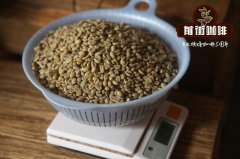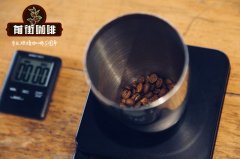What is a micro-batch of coffee? must a micro-batch of fine coffee be good?

Over time, many terms have been created and modified to meet the needs and expectations of the specialty coffee industry. One of these terms is microbatches, which are used by many members of the coffee industry to refer to small, proprietary and traceable coffee. However, there is still some confusion about the exact definition of the word.
In order for micro batches to be valuable to everyone in the coffee supply chain, the term needs to have a definition that everyone agrees on. However, views on small batches often vary from person to person. This is why there is so much confusion and how producers, bakers and traders use the term responsibly.
What is a miniature batch?
Micro batches have become a popular term for many third wave producers, buyers and sellers. This wave is characterized by the recognition of the importance of quality coffee that has been carefully processed and sustainably produced and provides customers with a unique experience. Therefore, in theory, the use of the term "micro batch" can bring some benefits to producers.
Nowadays, consumers are increasingly asking for detailed information about the altitude, climate and processing methods of the coffee they drink. Since these variables may vary within a region or farm, micro-batch labels can help producers prove traceability and uniqueness of their coffee.
Focusing on micro-batches can also help producers ensure that their coffees are more carefully classified and processed. Jolene Zehnder is the director of sales and operations for Novus Coffee Imports, a professional raw coffee supplier in the US state of Washington. By dividing the larger parts into smaller parts, she says, it will be easier for producers to distinguish between coffee. This can help them identify smaller batches of higher quality and get higher prices per pound on average. But, she added, the process can be complex and create more opportunities for mistakes.
In addition, labels can help producers promote long-term relationships with buyers, because any feedback provided by buyers on improving coffee quality can be easily achieved in smaller batches.
Producers' benefits from the use of micro-batch labels can be passed on to raw coffee buyers. Traceable, unique and high-quality coffee usually receives a premium from roasters and customers. However, if it is not clear what a microbatch is, it may prevent all members of the supply chain from benefiting from its use.
Why are there multiple definitions?
Obviously, different people in the coffee supply chain have unique ideas about small batches-their definition may involve different production, cup fraction, batch and farm size, and price per pound. Since little is known about the definition of micro-batches, each member of the supply chain may have a completely different understanding of its meaning.
Steven Schreber (Steven Schreiber), co-founder of Two Rivers Coffee in New York, says the definition of micro batches usually "depends on who sells it and how they want to sell it." Different farms, brokers and agents will describe their products according to their understanding of the terminology. The language barrier and the way of making a living also make translation lose a lot of things. "
For those who trade coffee, the term is often used to distinguish between small amounts of coffee that are not mixed with other batches. "Coffee dealers and traders use this term," said Peter Gakuo, a quality assurance expert in Kenya. When they plan to sell some of the coffee in their stock, if a batch is not in bulk with other coffee, it is called a micro batch because it is "pure". But this is not an indication of quality, but does not have to be very small. In this case, Micro means single. "
For producers, the term usually refers to a small portion of a single coffee variety that comes from a region and is processed together. Dylan Cummings (Dylan Cummings), managing director of the Beaver River Coffee Manor (Beaver Creek Coffee Estate) in Port Beaver, South Africa, said it was "the smallest coffee (in bulk)". The same farm, plantation, harvest date, cultivated variety, and / or process are processed as a batch. Due to the size of the farm, the amount of coffee harvested in a day, the size of the fermentor, grading, etc., it is usually very small. This can be said to be the definition of a miniature batch, and any other use of the word is often used as a marketing term. Micro batches are not quality indicators. "
The definition of miniature batches may also vary from producer to producer. As a buyer of raw coffee, Sam MacCuaig from Clifton Coffee Roasters in Bristol, UK, has witnessed the use of a variety of definitions. He said that while some producers use the term to describe all coffee in a single batch, others use it to describe all batches that have been processed by the cleaning station on a given day. "in the end, like all coffee, it seems very smooth and can be explained and / or marketed," he said. "
Some producers use the term to sell their coffee to roasters by using it to describe coffee that is closely monitored throughout production and processing-so that the profile of the final cup can be better controlled and repeatable. Roasters usually do not check why coffee batches are described in this way, nor do they verify the accompanying information. They will then re-market the coffee in miniature batches to deliver the coffee to the supply chain.
For some roasters, a small portion can be defined based on how much coffee can be baked in a day or how much coffee can be roasted in a day, depending on the scale of the operation. This usually happens when roasters try to improve their profit margins, such as when they buy large amounts of coffee, break it down into smaller batches and re-market them into different batches.
Black Drum Roasters runs a bakery in New South Wales, Australia. According to their website, miniature lots can be related to small farmers who are of high quality and take good care of their crops. However, they explain that the term is not as simple as it sounds because it does not explain the size of the bag, whether it involves coffee from one or more farms or whether it has been used or not. It is treated in the place where it grows or in a separate factory. They personally use the term to describe single-source coffee ground and washed in a single batch, resulting in a personalized choice of flavors with the characteristics of the region.
Important Notice :
前街咖啡 FrontStreet Coffee has moved to new addredd:
FrontStreet Coffee Address: 315,Donghua East Road,GuangZhou
Tel:020 38364473
- Prev

Kenya Coffee Flavor and Taste introduction to the varieties of African and Kenyan coffee beans
In less than a century, Kenya has become home to no less than four new varieties. First, the Scott Lab (ScottLaboratories) identified the famous SL-28 and SL-34 of the 1930s. They combine amazing flavor and drought resistance.
- Next

How do you treat the rose summer honey of Abu ABU Manor in Panama? how about the rose summer in Pokuit?
Panama Abou ABU Manor Rosy Honey treatment (Panama ABU Geisha Honey) ABU COFFEE is grown in typical tropical forests in the humid and rainy microclimate of the Boquete CaasVerdes area. Coffee trees grow on the slopes of Mount Baru National Park, with rich and deep soil, rich in organic matter and good drainage system, reducing erosion.
Related
- Detailed explanation of Jadeite planting Land in Panamanian Jadeite Manor introduction to the grading system of Jadeite competitive bidding, Red bid, Green bid and Rose Summer
- Story of Coffee planting in Brenka region of Costa Rica Stonehenge Manor anaerobic heavy honey treatment of flavor mouth
- What's on the barrel of Blue Mountain Coffee beans?
- Can American coffee also pull flowers? How to use hot American style to pull out a good-looking pattern?
- Can you make a cold extract with coffee beans? What is the right proportion for cold-extracted coffee formula?
- Indonesian PWN Gold Mandrine Coffee Origin Features Flavor How to Chong? Mandolin coffee is American.
- A brief introduction to the flavor characteristics of Brazilian yellow bourbon coffee beans
- What is the effect of different water quality on the flavor of cold-extracted coffee? What kind of water is best for brewing coffee?
- Why do you think of Rose Summer whenever you mention Panamanian coffee?
- Introduction to the characteristics of authentic blue mountain coffee bean producing areas? What is the CIB Coffee Authority in Jamaica?

